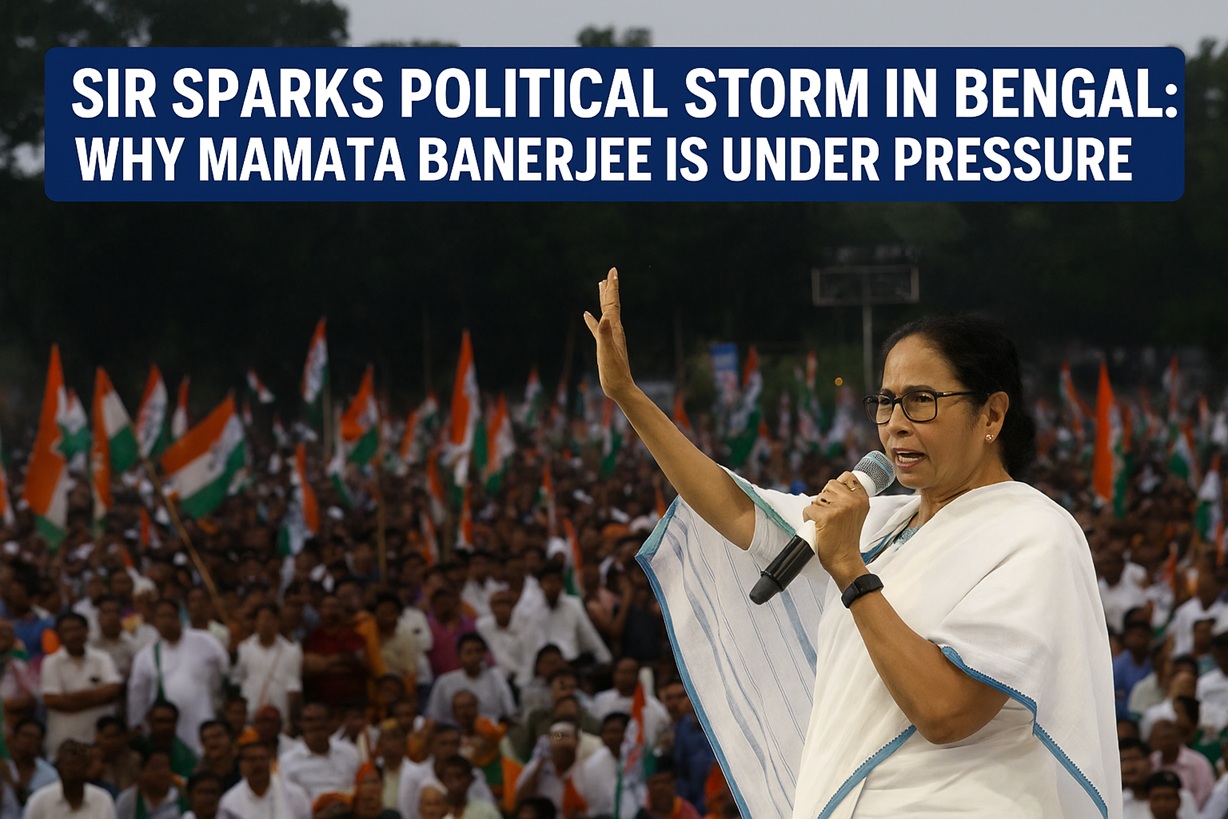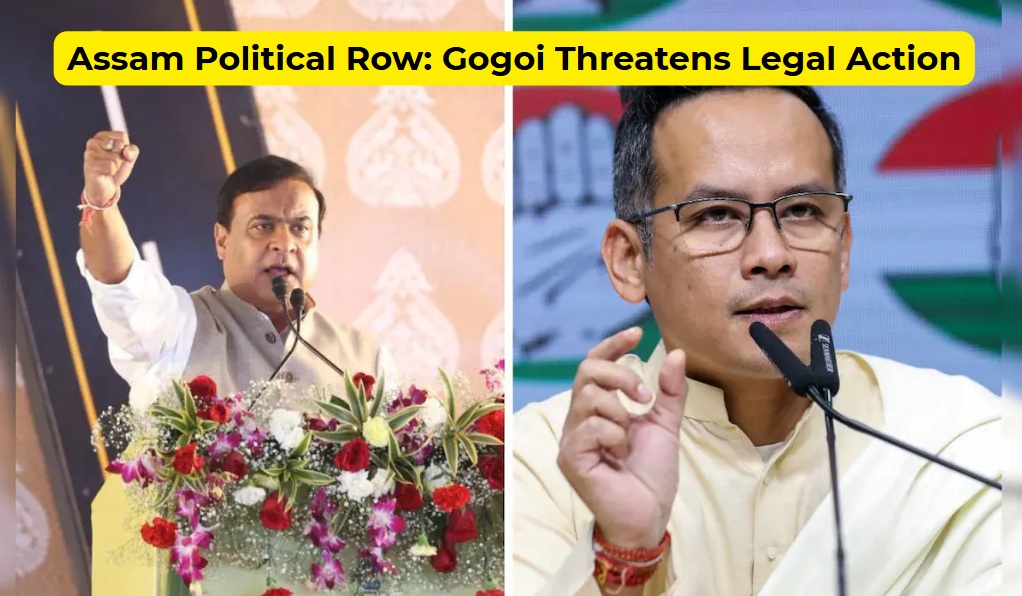
Mamata Banerjee urges the CEC to suspend the SIR exercise in West Bengal as TMC prepares for a major protest march on November 25. Here’s what’s driving the tension.
The Trinamool Congress (TMC) is gearing up for a fresh round of statewide protests against the Systematic Investigation and Revision (SIR) of Bengal’s electoral rolls. Party leaders have been instructed to intensify campaigns across Matua-dominated regions and North Bengal, with Chief Minister Mamata Banerjee set to lead a major foot march on November 25 and address community concerns through multiple public meetings.
Why the Political Temperature Is Rising
The SIR exercise has triggered unprecedented political upheaval in West Bengal. According to opposition claims, the verification drive has allegedly prompted a significant number of illegal Bangladeshi immigrants to retreat towards border areas—a trend that has become a major flashpoint in the ongoing political battle.
TMC, sensing the rising backlash, has called an emergency meeting on November 24, chaired by Abhishek Banerjee, followed by a mega rally on November 25 against the Election Commission’s move.
Opposition’s Charge: Protecting a Vote Bank?
Leader of the Opposition Suvendu Adhikari alleges that Mamata Banerjee is attempting to “weaken the Election Commission” and protect a long-nurtured illegal vote bank. He argues that the SIR process is exposing deep-rooted irregularities, including unauthorized Aadhaar cards, voter IDs, and evidence of illegal immigrants participating in past elections.
Mamata, however, has rejected these claims and written to the Chief Election Commissioner, calling SIR “chaotic, dangerous, and filled with irregularities.”
Ground Reality Intensifies the Debate
Recent visuals circulated by multiple news channels show individuals at border points admitting to being Bangladeshi nationals, holding Aadhaar and voter cards, and claiming they are leaving “because SIR has started.”
These revelations have sparked nationwide questions about systemic lapses, alleged documentation rackets, and the role of local networks that facilitated illegal enrolment.
Judiciary, Enforcement, and the Political Narrative
The controversy has now expanded into a heated debate involving the Supreme Court, the Election Commission, and political parties—raising concerns over national security, documentation fraud, and the integrity of future elections (2026 Assembly & 2029 Lok Sabha).
Critics argue that unchecked infiltration, lax enforcement, and alleged misuse of welfare and identity systems have turned parts of Bengal—especially Kolkata outskirts, New Town, and airport-adjacent zones—into hotspots of demographic and political imbalance.
TMC’s Shifting Stand on Infiltration
Observers also note that Mamata Banerjee’s stance today contrasts sharply with her earlier political position. When the Left ruled Bengal and allegedly benefited from the same voter segments, Mamata accused them of altering Bengal’s demography. Today, opposition leaders accuse her of relying on the same population as a strategic vote bank.
SIR: What Is at Stake?
SIR is essentially a purification of the electoral roll—meant to remove:
- deceased voters
- duplicate entries
- forged identities
- illegal immigrants enrolled as voters
For the Election Commission, it is a security-linked, integrity-driven exercise. For TMC, however, it poses a political risk that could reshape Bengal’s electoral landscape.
The Bigger Question
As the SIR process advances, TMC’s anxiety appears to be growing. A transparent and updated voter list may reveal the real strength of legitimate voters versus “imported” or irregular entries. This potential shift could heavily influence the 2026 state elections and the 2029 national polls.





